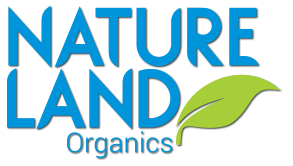Organic farming is a technique, which involves cultivation of plants and rearing of animals in natural ways. This process involves the use of biological materials, avoiding synthetic substances to maintain soil fertility and ecological balance thereby minimizing pollution and wastage. It relies on
ecologically balanced agricultural principles like crop rotation, green manure, organic waste, biological pest control, mineral and rock additives. Organic farming make use of pesticides and fertilizers if they are considered natural and avoids the use of various petrochemical fertilizers and pesticides.
There are many explanations and definitions for organic agriculture but all converge to state that it is a system that relies on ecosystem management rather than external agricultural inputs. It is a system that begins to consider potential environmental and social impacts by eliminating the use of synthetic inputs, such as synthetic fertilizers and pesticides, veterinary drugs, genetically modified seeds and breeds, preservatives, additives and irradiation. These are replaced with site-specific management practices that maintain and increase long-term soil fertility and prevent pest and diseases.
“Organic agriculture is a holistic production management system which promotes and enhances agro-ecosystem health, including biodiversity, biological cycles, and soil biological activity. It emphasises the use of management practices in preference to the use of off-farm inputs, taking into account that regional conditions require locally adapted systems. This is accomplished by using, where possible, agronomic, biological, and mechanical methods, as opposed to using synthetic materials, to fulfil any specific function within the system.” (FAO/WHO Codex Alimentarius Commission, 1999).
Organic agriculture systems and products are not always certified and are referred to as “non-certified organic agriculture or products”. This excludes agriculture systems that do not use synthetic inputs by default (e.g. systems that lack soil building practices and degrade land). Three different driving forces can be identified for organic agriculture:
- Consumer or market-driven organic agriculture. Products are clearly identified through certification and labelling. Consumers take a conscious decision on how their food is produced, processed, handled and marketed. The consumer therefore has a strong influence over organic production.
- Service-driven organic agriculture. In countries such as in the European Union (EU), subsidies for organic agriculture are available to generate environmental goods and services, such as reducing groundwater pollution or creating a more biologically diverse landscape.
- Farmer-driven organic agriculture. Some farmers believe that conventional agriculture is unsustainable and have developed alternative modes of production to improve their family health, farm economies and/or self-reliance. In many developing countries, organic agriculture is adopted as a method to improve household food security or to achieve a reduction of input costs. Produce is not necessarily sold on the market or is sold without a price distinction as it is not certified. In developed countries, small farmers are increasingly developing direct channels to deliver non-certified organic produce to consumers. In the United States of America (USA), farmers marketing small quantities of organic products are formally exempt from certification.
Need for Organic Farming :
The population of the planet is skyrocketing and providing food for the world is becoming extremely difficult. The need of the hour is sustainable cultivation and production of food for all. The Green Revolution and its chemical based technology are losing its appeal as dividends are falling and returns are unsustainable. Pollution and climate change are other negative externalities caused by use of fossil fuel based chemicals. As of 2012, the market for organic farming and other products has reached $63 billion worldwide.
- · Protecting soil quality using organic material and encouraging biological activity
- · Indirect provision of crop nutrients using soil microorganisms
- · Nitrogen fixation in soils using legumes
- · Weed and pest control based on methods like crop rotation, biological diversity, natural predators, organic manures and suitable chemical, thermal and biological intervention
- · Rearing of livestock, taking care of housing, nutrition, health, rearing and breeding
- · Care for the larger environment and conservation of natural habitats and wild life
Four Principles of Organic Farming :
- Principle of Health: Organic agriculture must contribute to the health and well being of soil, plants, animals, humans and the earth. It is the sustenance of mental, physical, ecological and social well being. For instance, it provides pollution and chemical free, nutritious food items for humans
- Principle of Fairness: Fairness is evident in maintaining equity and justice of the shared planet both among humans and other living beings. Organic farming provides good quality of life and helps in reducing poverty. Natural resources must be judiciously used and preserved for future generations.
- Principle of Ecological Balance: Organic farming must be modeled on living ecological systems. Organic farming methods must fit the ecological balances and cycles in nature.
- Principle of Care: Organic agriculture should be practiced in a careful and responsible manner to benefit the present and future generations and the environment.
As opposed to modern and conventional agricultural methods, organic farming does not depend on synthetic chemicals. It utilizes natural, biological methods to build up soil fertility such as microbial activity boosting plant nutrition.

